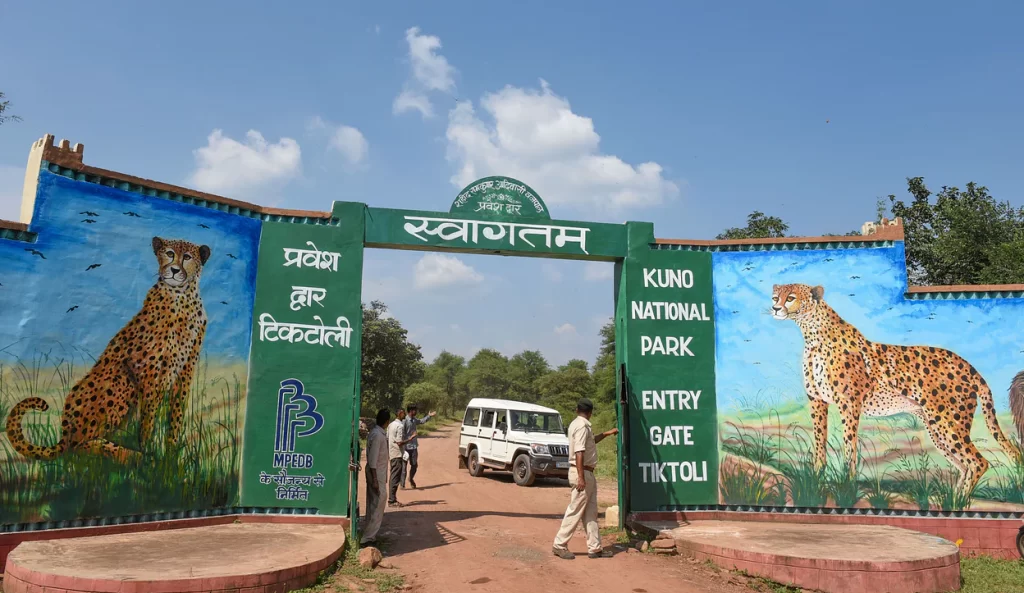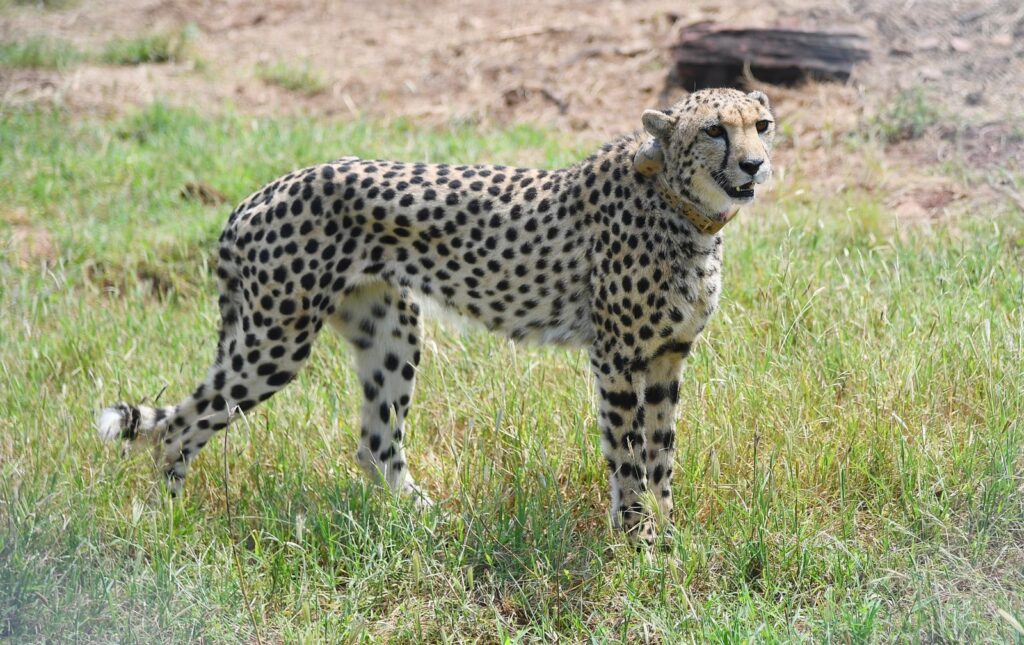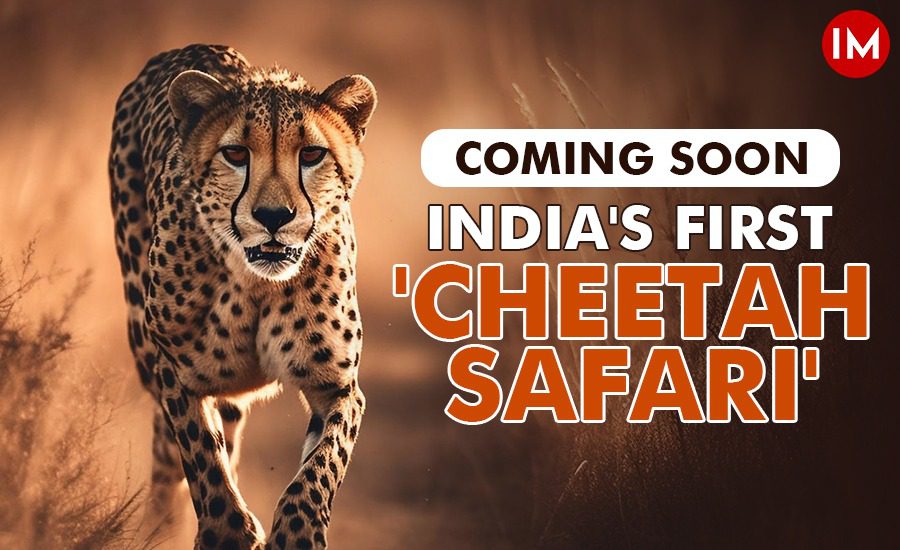To redefine wildlife conservation and tourism, Madhya Pradesh’s Kuno National Park hosted a pack of Cheetahs brought in from South Africa and Namibia last year. Now it is set to embark on a historic journey with the creation of the nation’s inaugural ‘Cheetah Safari’. With an estimated expenditure of Rs 50 crore, this visionary project has secured in-principle approval from the Central Zoo Authority, marking a significant milestone in the efforts to reintroduce cheetahs into the wild.
CHEETAH SAFARI
Drawing inspiration from the success of the ‘White Tiger Safari’ in Mukundpur, the ‘Cheetah Safari’ is not merely a tourist attraction but a testament to the state’s commitment to wildlife conservation and education. The project envisions a multifaceted approach, incorporating education, exhibition, and research, with a primary focus on fostering awareness and understanding of these majestic creatures.
As the wheels of progress turn, the ‘Cheetah Safari’ is set to commence in approximately two years, offering visitors a unique opportunity to witness cheetahs roaming in their natural habitat. The expansive safari will cover an area of 181.17 hectares, with 124.94 hectares designated as the forest area within the Kuno forest division.
“It’s not yet been decided that how many cheetahs will be released in the safari. When the DPR is finalized, we will have a better idea,” IFS Uttam K Sharma, CCD, Land Project told Indian Masterminds.
This strategic move underscores the commitment to preserving the region’s biodiversity and creating a balanced ecosystem within the confines of Kuno National Park.

INTERPRETATION CENTRE
At the heart of the ‘Cheetah Safari’ lies an Interpretation Centre, an edifice set to rise within Kuno National Park, offering a comprehensive narrative of the cheetah conservation project. Visitors will delve into the intricacies of how the project was formulated, the significance of cheetahs, and the global importance of inter-continental translocation of these incredible feline species.
Mr. Sharma in an interview with Indian Masterminds, emphasized the educational aspect of the safari, stating, “The cheetah safari is for education, exhibition, and research purposes. The focus is primarily on research and education, but visitors will also have the unique opportunity for direct interaction with cheetahs. The overarching goal is to elevate tourism in the region while fostering a deeper understanding of wildlife conservation.”
The project aims not only to reintroduce cheetahs after a 70-year hiatus but also to position Kuno National Park as a vibrant tourist destination showcasing the diverse flora and fauna of the region.

KUNO FOREST FESTIVAL
Kuno has recently concluded a 5-day Forest festival with the aim to bring in the world’s focus on responsible tourism especially when it comes to wildlife and wilderness. The festival featured events such as hot-air balloons, paramotoring, horse riding, air gun shooting and other thrilling activities, along with cultural program and activities to promote local art and culture.
The ‘Cheetah Safari’ promises to be more than just a safari; it is a testament to the harmonious coexistence of wildlife and tourism, where the awe-inspiring beauty of nature meets the imperative of conservation.


































